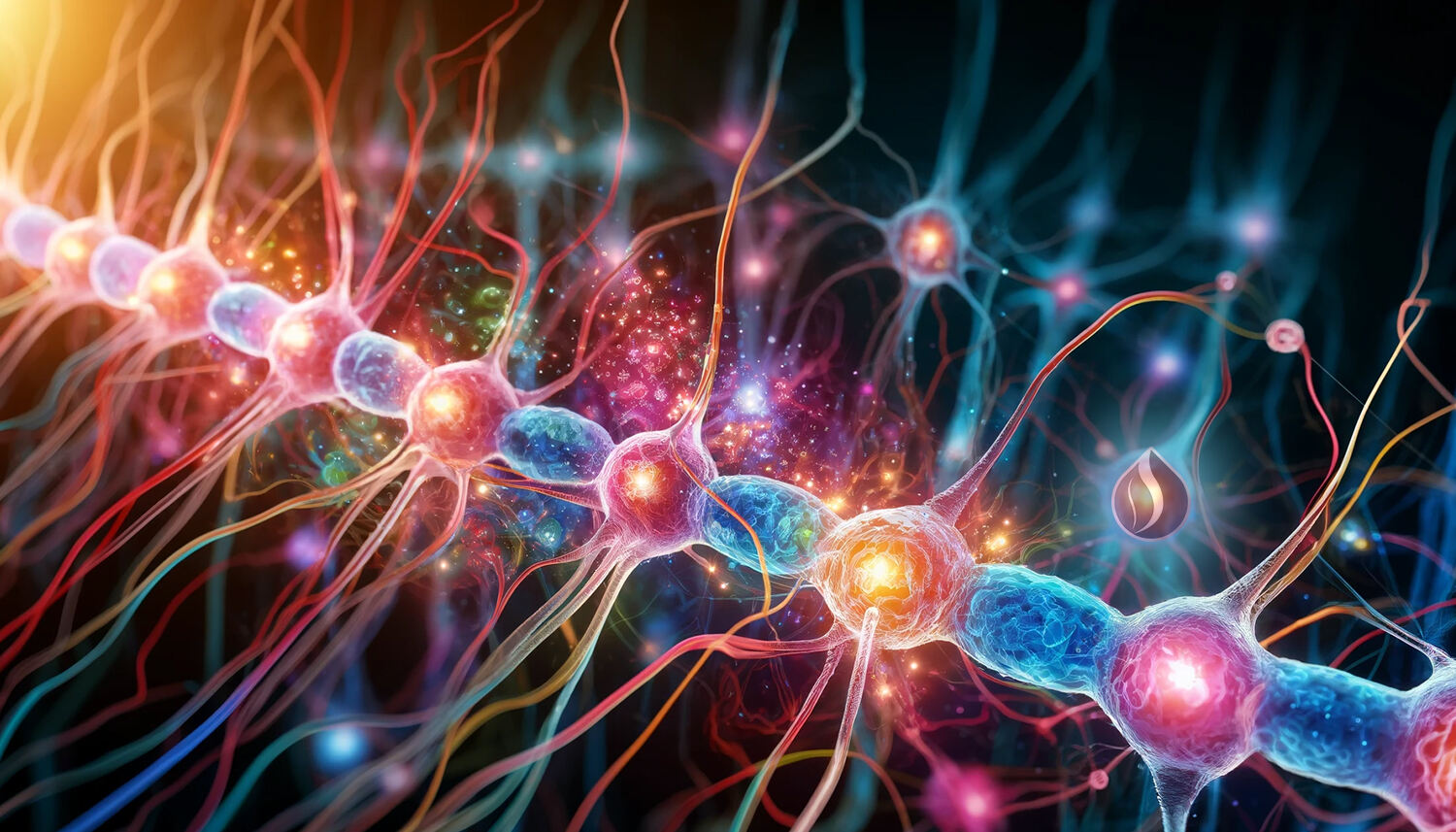
Gamma-Aminobutyric Acid (GABA) is a crucial neurotransmitter in the brain. It plays a key role in reducing neuronal excitability, which helps maintain balance in the nervous system. But why should you care about GABA? Because it affects everything from mood to sleep! Understanding GABA can help you grasp how your brain manages stress, anxiety, and relaxation. This tiny molecule has a big impact on mental health, making it a hot topic in neuroscience. Ready to dive into some fascinating facts about GABA? Let's explore how this neurotransmitter works, its benefits, and why it's essential for your well-being.
Key Takeaways:
- GABA is a neurotransmitter that helps keep our brains balanced and calm. It's involved in everything from muscle tone to mood, and even affects how we sleep and handle stress.
- GABA isn't just important for our brains - it also plays a role in our overall health. It can influence things like our appetite, pain perception, and even how our immune system works.
What is Gamma-Aminobutyric Acid (GABA)?
Gamma-Aminobutyric Acid, or GABA, is a neurotransmitter in the brain. It plays a crucial role in regulating brain activity. Let's dive into some fascinating facts about this essential compound.
- GABA is the primary inhibitory neurotransmitter in the central nervous system.
- It helps reduce neuronal excitability throughout the nervous system.
- GABA is synthesized from glutamate, another neurotransmitter.
- It was first discovered in 1950 by Eugene Roberts and J. Awapara.
- GABA is found in both the brain and spinal cord.
- It binds to specific receptors known as GABA receptors.
- There are two main types of GABA receptors: GABA-A and GABA-B.
- GABA-A receptors are ionotropic, meaning they control ion channels.
- GABA-B receptors are metabotropic, meaning they work through G-proteins.
- GABA-A receptors are faster-acting than GABA-B receptors.
GABA's Role in the Brain
GABA's primary function is to inhibit or reduce the activity of neurons. This helps maintain balance in the brain and prevents overexcitement.
- GABA helps regulate muscle tone.
- It plays a role in controlling anxiety.
- GABA is involved in sleep regulation.
- It helps manage stress levels.
- GABA can influence mood and emotional well-being.
- It is essential for cognitive functions like learning and memory.
- GABAergic neurons are found in various brain regions, including the cortex and hippocampus.
- It helps prevent seizures by inhibiting excessive neuronal firing.
- GABA levels can be affected by diet and lifestyle.
- Low GABA levels are associated with conditions like anxiety and depression.
GABA and Mental Health
GABA's impact on mental health is significant. It is often linked to various psychological conditions and treatments.
- GABA supplements are sometimes used to treat anxiety.
- Benzodiazepines, a class of anti-anxiety drugs, enhance GABA activity.
- GABA levels can be measured using magnetic resonance spectroscopy (MRS).
- Some antidepressants work by increasing GABA levels.
- GABA dysfunction is linked to schizophrenia.
- It plays a role in bipolar disorder.
- GABAergic drugs are used to treat epilepsy.
- GABA levels can be influenced by alcohol consumption.
- Chronic stress can reduce GABA levels.
- Meditation and yoga can help increase GABA levels.
GABA in Everyday Life
GABA's influence extends beyond the brain. It affects various aspects of daily life and overall health.
- GABA is found in some foods, like fermented products.
- It is available as a dietary supplement.
- GABA supplements are often used to improve sleep quality.
- It can help reduce symptoms of premenstrual syndrome (PMS).
- GABA is involved in the regulation of blood pressure.
- It plays a role in pain perception.
- GABA can influence appetite and eating behavior.
- It is involved in the regulation of body temperature.
- GABAergic activity can affect gastrointestinal function.
- Exercise can increase GABA levels in the brain.
Scientific Research on GABA
Ongoing research continues to uncover new information about GABA and its functions.
- Studies show GABA's role in neuroplasticity, the brain's ability to reorganize itself.
- Research suggests GABA may help protect against neurodegenerative diseases.
- GABAergic drugs are being explored for the treatment of addiction.
- Scientists are investigating GABA's role in autism spectrum disorders.
- GABA levels are being studied in relation to chronic pain conditions.
- Research indicates GABA may play a role in immune system regulation.
- GABA's effects on hormone regulation are being explored.
- Studies are examining the potential of GABA in treating insomnia.
- GABA's role in aging and cognitive decline is a focus of current research.
- New GABAergic compounds are being developed for therapeutic use.
Final Thoughts on Gamma-Aminobutyric Acid
Gamma-Aminobutyric Acid, or GABA, plays a crucial role in the brain's function. This neurotransmitter helps regulate nerve activity, reducing anxiety and promoting relaxation. Understanding GABA's impact on the body can lead to better mental health strategies and treatments.
From its role in sleep to its influence on mood, GABA's effects are far-reaching. Supplements and lifestyle changes can boost GABA levels, potentially improving overall well-being. However, always consult a healthcare professional before starting any new supplement regimen.
GABA's importance in neuroscience and mental health can't be overstated. By learning more about this vital neurotransmitter, we can better appreciate how our brains work and how to support them. Keep these facts in mind as you explore ways to enhance your mental health and well-being.
Frequently Asked Questions
Was this page helpful?
Our commitment to delivering trustworthy and engaging content is at the heart of what we do. Each fact on our site is contributed by real users like you, bringing a wealth of diverse insights and information. To ensure the highest standards of accuracy and reliability, our dedicated editors meticulously review each submission. This process guarantees that the facts we share are not only fascinating but also credible. Trust in our commitment to quality and authenticity as you explore and learn with us.
